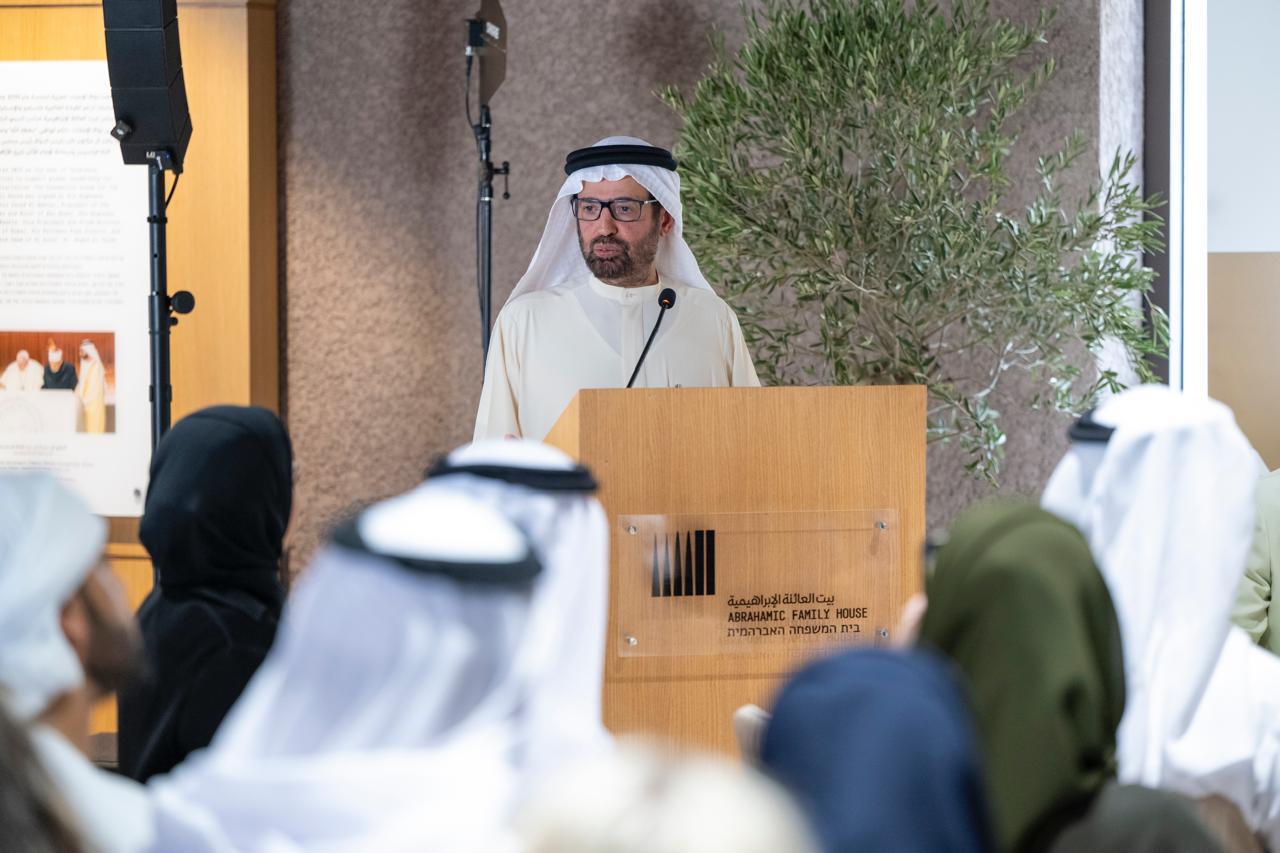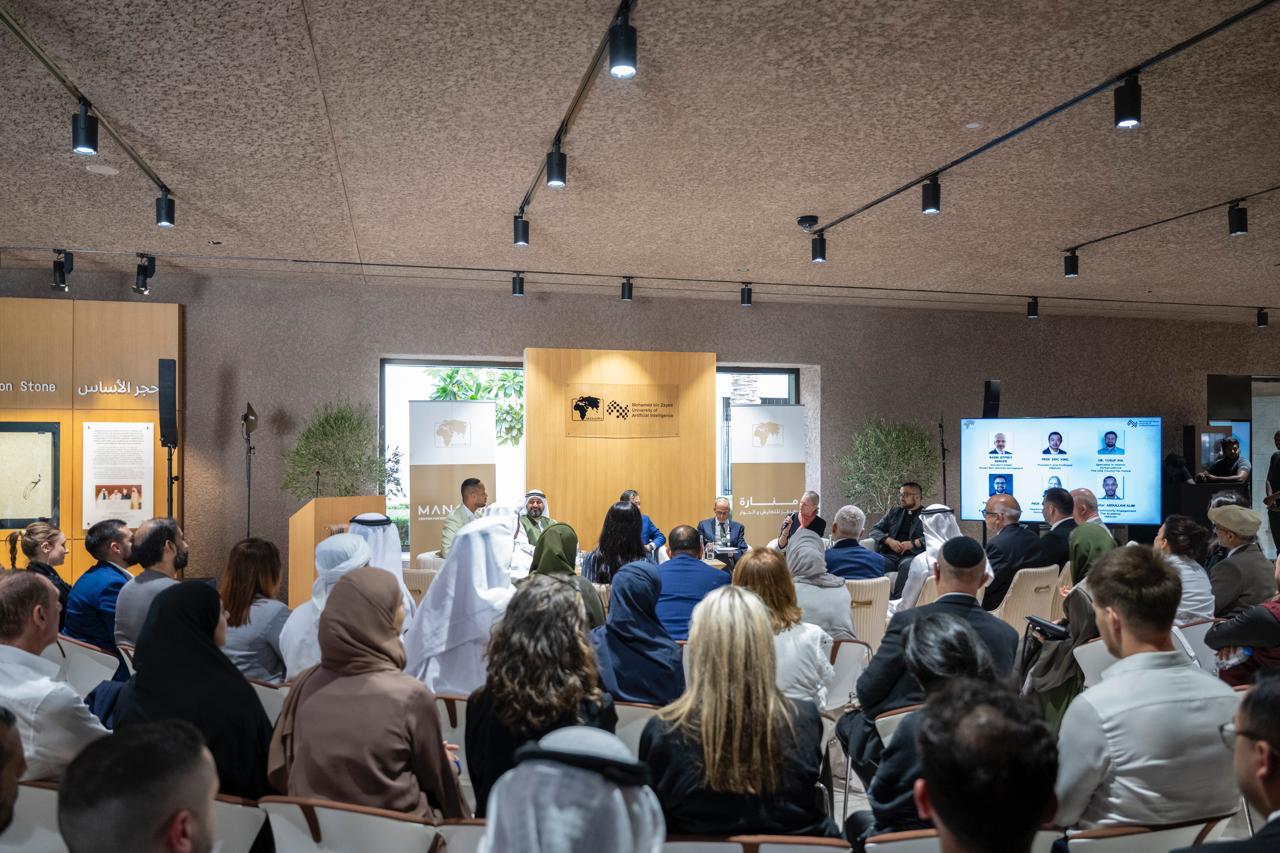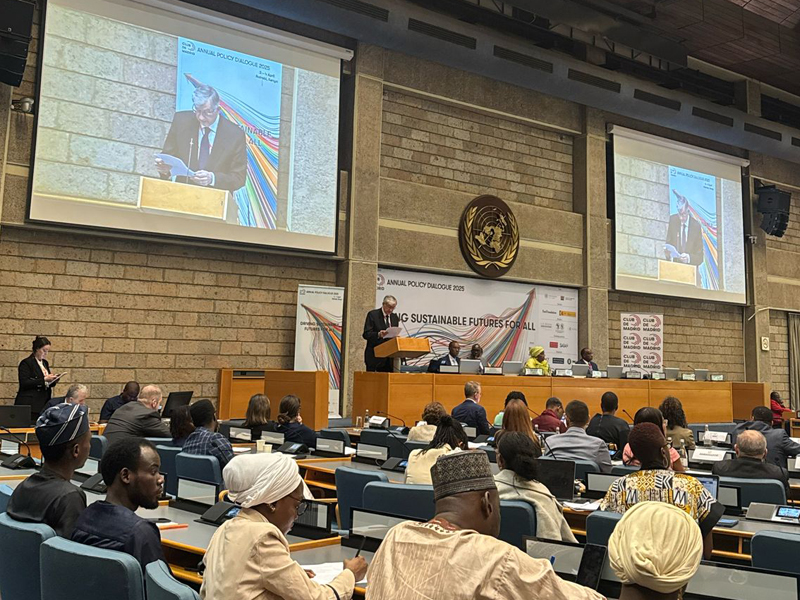Faith in the Age of Artificial Intelligence: Reflections from an Interfaith Dialogue
At the intersection of faith and technology, leaders from religious communities and artificial intelligence experts came together in Abu Dhabi to explore how spiritual traditions can guide humanity into the era of AI.
On July 3, 2024, the Manara Center for Coexistence and Dialogue, in collaboration with the Mohamed bin Zayed University of Artificial Intelligence (MBZUAI), hosted a landmark interfaith panel discussion at the Abrahamic Family House. The session, titled “Faith in the Age of Artificial Intelligence,” brought together global voices from diverse fields to examine the ethical, philosophical, and human dimensions of AI.
Bridging Faith and Technology
Opening the session, H.E. Dr. Ali Al Nuaimi, Chairman of the Manara Center, stressed the importance of including spiritual leaders in conversations about technology and the future:
“Faith and faith leaders cannot be excluded from any development in a society, community, or nation. They must be part of the conversation, especially with those shaping the future and building the next generation of AI.”
Voices Behind the Conversation
The panel, moderated by Abdullahi Ali, Head of Community Engagement at MBZUAI, featured an impressive lineup of speakers:
- Prof. Eric Xing, President of MBZUAI
- Prof. Elizabeth Churchill, Chair of Human-Computer Interaction at MBZUAI
- Rabbi Jeffrey Berger, Resident Rabbi at the Moses Ben Maimon Synagogue, Abrahamic Family House
- Pastor Will Barkley, Associate Pastor at Evangelical Community Church of Abu Dhabi
- Dr. Yusuf Jha, Specialist in Islamic Jurisprudence at the UAE Council for Fatwa
Understanding AI: Human Intelligence vs. Machine Capability
Prof. Eric Xing demystified AI for the audience, explaining that while AI systems can perform tasks that seem intelligent, they remain fundamentally tools created by humans: “AI may appear intelligent, but at its core, it’s still a machine following programmed logic. It draws from vast language memory and rapid information retrieval to simulate responses, but it lacks true understanding.”
Empathy and Human Experience
Prof. Elizabeth Churchill focused on the limits of technology when it comes to emotional depth: “What sets humans apart is empathy. Machines can deliver information, but they lack the embodied experience that forms the emotional and moral context of human understanding.”
Faith, Community, and Connection
Reflecting on the spiritual implications of technological change, Pastor Will Barkley emphasized the importance of human connection in a digital world: “There is a growing need for embodied souls, real human presence. Even as people form emotional connections with virtual personalities, faith leaders must stay informed and guide communities through these shifts.”
Learning from History: Spiritual Reflection and Innovation
Dr. Yusuf Jha brought a historical perspective to the discussion, noting that religious traditions have long grappled with technological change: “Every major religion encourages spiritual self-reflection. The concern religious authorities once had over the printing press was not rejection, but a fear of losing the sacred—like the art of calligraphy and its spiritual depth. It’s a reminder to approach innovation thoughtfully.”
Faith and Science: Partners, Not Rivals
Rabbi Jeffrey Berger addressed the emotional dimension of change and the relationship between science and faith: “Anxiety around change is natural. But with each transformation comes an invitation to understand ourselves more deeply. Science and faith are not in competition; together, they help us form a more complete and honest vision of our world.”
Looking Ahead: A Collaboration Between Wisdom and Innovation
Closing the event, Bakhita Alremeithi, Executive Director of the Manara Center, offered a reflection on the role of faith in scientific progress: “Faith has never feared science. In fact, it has endorsed scientific exploration and encouraged us to ask, wonder, and observe. Most importantly, it teaches us to remain humble in the face of what we cannot yet explain. As we step into the age of AI, we are not stepping away from our values. Today’s conversation is a collaboration between our deepest wisdom and our boldest ambitions.”
Continuing the Dialogue
As artificial intelligence reshapes our world, the Manara Center will continue to foster spaces for dialogue between ethics, technology, and spirituality, ensuring that human dignity and moral reflection remain at the core of innovation.
الإيمان في عصر الذكاء الاصطناعي: تأملات من حوار بين الأديان
في تقاطع الإيمان والتكنولوجيا، اجتمع قادة المجتمعات الدينية وخبراء الذكاء الاصطناعي في أبوظبي لاستكشاف كيف يمكن للتقاليد الروحية أن ترشد الإنسانية في عصر الذكاء الاصطناعي.
في 3 يوليو 2024، نظم مركز منارة للتعايش والحوار، بالتعاون مع جامعة محمد بن زايد للذكاء الاصطناعي، جلسة حوارية مميزة في بيت العائلة الإبراهيمية. وجمعت الجلسة، التي جاءت بعنوان “الإيمان في عصر الذكاء الاصطناعي”، أصواتًا عالمية من مجالات متنوعة لمناقشة الأبعاد الأخلاقية والفلسفية والإنسانية للذكاء الاصطناعي.
الوصل بين الإيمان والتكنولوجيا
افتتح الجلسة معالي الدكتور علي النعيمي، رئيس مركز منارة، مشددًا على أهمية إشراك القادة الروحيين في النقاش حول التكنولوجيا والمستقبل: “لا يمكن استبعاد الإيمان وقادته من أي تطور في المجتمع أو الأوطان. يجب أن يكونوا جزءًا من الحوار، خاصة مع أولئك الذين يشكلون المستقبل ويبنون الجيل القادم من الذكاء الاصطناعي
الأصوات المشاركة في الحوار
أدار الجلسة عبدالله عليم، رئيس قسم التواصل المجتمعي في جامعة محمد بن زايد للذكاء الاصطناعي، وشارك فيها:
- البروفيسور إريك شينغ، رئيس جامعة محمد بن زايد للذكاء الاصطناعي
- البروفيسورة إليزابيث تشرشل، رئيسة قسم التفاعل بين الإنسان والحاسوب في جامعة محمد بن زايد للذكاء الاصطناعي
- الحاخام جيفري بيرجر، الحاخام المقيم في كنيس موسى بن ميمون في بيت العائلة الإبراهيمية
- القس ويل باركلي، القس المساعد في الكنيسة الإنجيلية المجتمعية في أبوظبي
- الدكتور يوسف جه، متخصص في الفقه الإسلامي في مجلس الإمارات للإفتاء
فهم الذكاء الاصطناعي: الذكاء البشري مقابل قدرات الآلة
فسر البروفيسور إريك شينغ مفهوم الذكاء الاصطناعي، موضحًا أن هذه الأنظمة، رغم قدرتها على أداء مهام تبدو ذكية، تظل أدوات من صنع الإنسان: “قد يبدو الذكاء الاصطناعي ذكيًا، لكنه في جوهره مجرد آلة تنفذ منطقًا مبرمجًا. يستند إلى ذاكرة لغوية ضخمة وسرعة استرجاع المعلومات لتقديم ردود تشبه الذكاء، لكنه يفتقر إلى الفهم الحقيقي.”
التعاطف والتجربة الإنسانية
أكدت البروفيسورة إليزابيث تشرشل على حدود التكنولوجيا عندما يتعلق الأمر بالعمق العاطفي: “ما يميز البشر هو التعاطف. الآلات قد تقدم المعلومات، لكنها تفتقر إلى التجربة المجسدة التي تشكل السياق العاطفي والأخلاقي للفهم الإنساني.”
الإيمان والمجتمع والتواصل
تحدث القس ويل باركلي عن تداعيات التكنولوجيا على العلاقات الإنسانية: “هناك حاجة متزايدة للأرواح المتجسدة، للحضور الإنساني الحقيقي. حتى مع تطور العلاقات مع الشخصيات الافتراضية، يجب على القادة الدينيين أن يبقوا على دراية بهذه التحولات لتوجيه مجتمعاتهم بشكل هادف.”
دروس من التاريخ: التأمل الروحي والابتكار
أضاف الدكتور يوسف جه منظورًا تاريخيًا للنقاش، مشيرًا إلى أن التقاليد الدينية لطالما تعاملت مع التغيير التكنولوجي: “تشجع كل ديانة كبرى على التأمل الذاتي الروحي. ولم يكن تخوف السلطات الدينية من الطباعة رفضًا، بل كان خوفًا من فقدان المقدس، مثل فن الخط وجمالياته الروحية. وهو تذكير بأهمية التعامل مع الابتكار بحكمة.”
العلم والإيمان: شركاء لا متنافسون
تحدث الحاخام جيفري بيرجر عن البعد العاطفي للتغيير وعلاقة العلم بالدين: “القلق من التغيير أمر طبيعي. لكن كل تحول يتيح لنا فهم أنفسنا بشكل أعمق. العلم والإيمان ليسا في حالة تنافس؛ بل معًا يساعداننا في تشكيل رؤية أكثر صدقًا وشمولية لعالمنا.”
نظرة إلى المستقبل: تعاون بين الحكمة والابتكار
اختتمت الجلسة السيدة بخيتة الرميثي، المدير التنفيذي لمركز منارة، بتأمل حول دور الإيمان في التقدم العلمي: “لم يكن الإيمان يومًا متخوفًا من العلم، بل كان دائمًا مشجعًا على الاكتشاف والسؤال والملاحظة. والأهم من ذلك أنه يعلمنا التواضع أمام ما لا نستطيع تفسيره بعد. ونحن ندخل عصر الذكاء الاصطناعي، لا نبتعد عن قيمنا؛ بل نجمع بين أعمق حكمتنا وأبعد طموحاتنا.”
مواصلة الحوار
بينما يعيد الذكاء الاصطناعي تشكيل عالمنا، سيواصل مركز منارة توفير منصات للحوار تجمع بين الأخلاق والتكنولوجيا والروحانية، لضمان بقاء الكرامة الإنسانية والتأمل الأخلاقي في قلب الابتكار.







